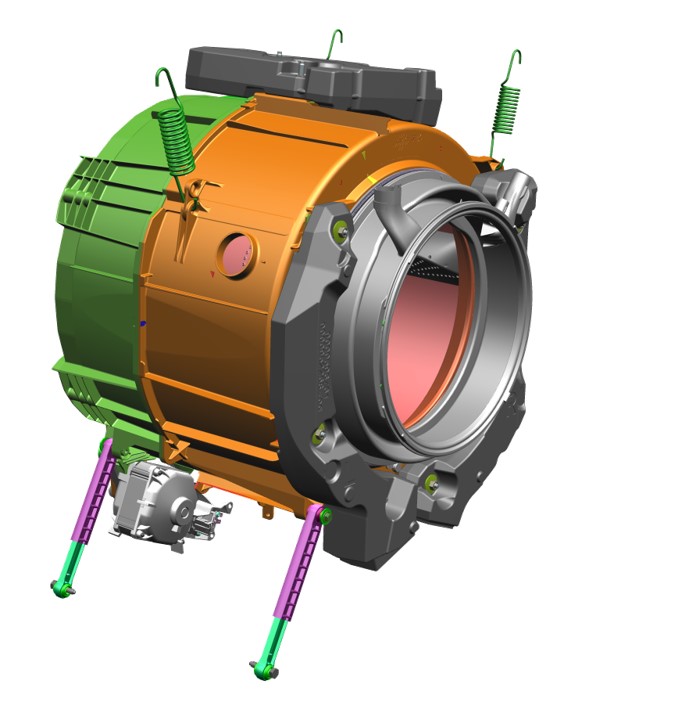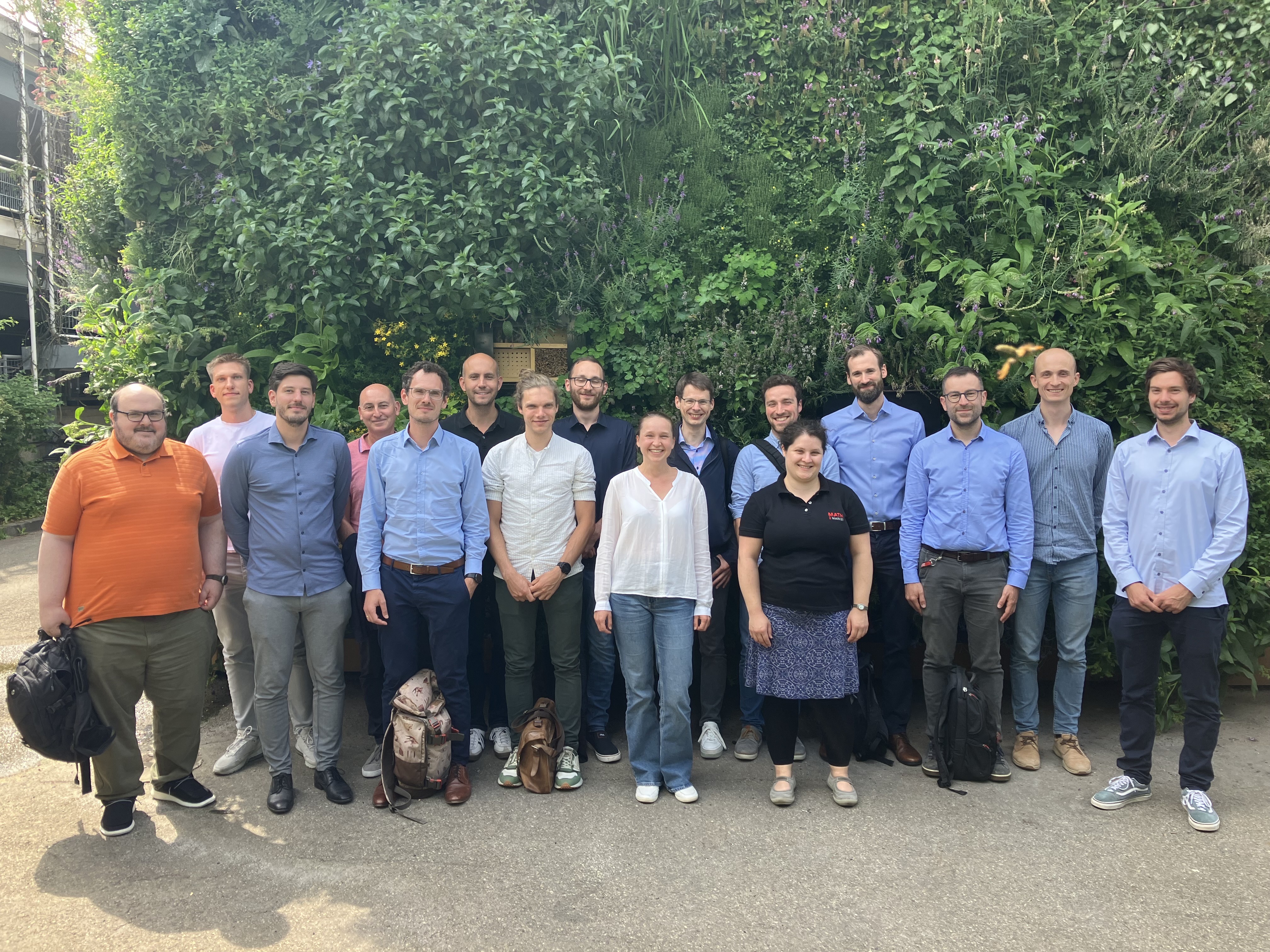In the project »DigiLaugBeh«, which is funded by the German Federal Ministry of Economic Affairs and Climate Action, our researchers are facing challenges on several levels at once: Digital twins are helping to optimize the caustic tank of washing machines in terms of materials. By simulating the components made of fiber-reinforced plastics, those involved in the project are finding out what a component must look like that will last a long time and at the same time make the appliances more energy-efficient as well as more resource-efficient.
Lightweight Construction and Long Fibers Save Energy With the Help of Simulations
BMWK-Project »DigiLaugBeh«: Digital Twin Optimizes Lye Tanks of Washing Machines
Fiber-reinforced plastics and lightweight construction have become indispensable in the production of vehicles, but also in the choice of materials for household appliances. In washing machines, injection-molded components made of short-fiber-reinforced thermoplastics (SFT) have been used most often to date. They have fiber lengths of between 200 and 350 micrometers. New environmental labels have been in force throughout the EU since March 2021. These divide all washing machines into efficiency classes from A to G. Better and better appliances are coming onto the market and people are paying more attention to the certificates when buying. Labels with A and plus signs no longer exist.
Nothing Easier Than Washing – It’s the Plastic in the Tub That Counts
The demands on equipment and production have increased. Previous concepts using short fibers can no longer cope with this. The project shows that long-fiber-reinforced plastics are a good alternative. »DigiLaugBeh« focuses on a demonstrator on which we repeatedly validate and test the methods for digital design optimization. It simulates the caustic tank of a washing machine, which enables drying and washing in one device. This is already being produced in large numbers.
The process places high demands on the material in the tub – not only in terms of mechanical properties and service life, but also in terms of energy balance. Not every plastic can cope with caustic in the long term, and at the same time faster spinning and lightweight construction with long fibers are seen as the solution when it comes to saving energy. This also requires robust material. The tough plastic polypropylene is one way to solve this. The increasing fiber length (two to three millimeters in the component) extends the service life of the material.
Simulation Chain Thought Through to the End
But the interdisciplinary team has set its sights on even more: An entire simulation chain involves macro and micro levels. They not only digitally design the process and the material, but also include production in the injection molding process. In addition, the environmental balance is taken into account – from the CO2 footprint and energy consumption to recycling. For this, the team combines various simulation methods in many steps.
Future Commercialization in Industry
The basis for the approach is a long-standing cooperation between BOSCH and Fraunhofer ITWM, in which the feasibility of such an approach has already been successfully demonstrated for SFT in the industrial research environment. At the end of the project »DigiLaugBeh«, a demonstrator adapted to the increased requirements will be designed, manufactured and tested. The digital twin will be repeatedly validated and adapted in real experiments.
In parallel, the project team is developing a concept for recycling material so that plastic from old equipment can be returned to the product cycle with the addition of new granulate. Ideally, all these multi-layered results will flow into industrial production over the next five years.
Our Partners
- Robert Bosch GmbH (Project Management)
- Math2Market GmbH
- University of Stuttgart, Institute for Acoustics and Building Physics (IABP)
- University of Stuttgart, Institute for Institute for Sanitary Engineering, Water Quality and Solid Waste Management (ISWA)
- RWTH Aachen, Chair of Plastics Processing
- Plastics Engineering Group GmbH (PEG), Spin-off of the Darmstadt University of Applied Sciences
The two associated partners BSH Hausgeräte GmbH and Celanese Services Germany GmbH provide appliances and material.
Project Funding and Duration
The project »DigiLaugBeh« is funded by the German Federal Ministry of Economic Affairs and Climate Action, has been running since November 2021 in the Technology Transfer Program Lightweight Construction (TTP LB) and is scheduled to run for three years.


